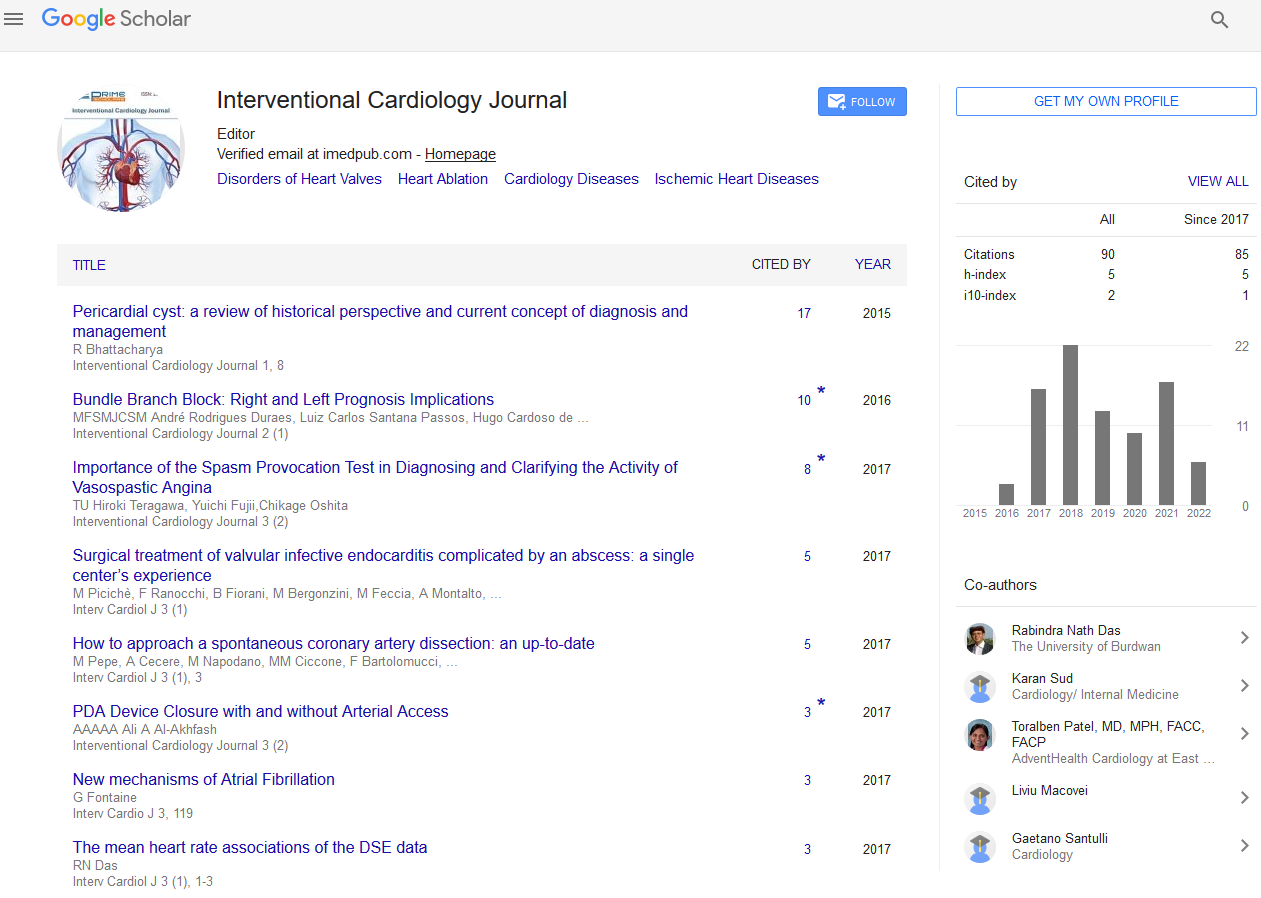Commentary - (2023) Volume 9, Issue 9
Hypertrophic Cardiomyopathy: Causes, Symptoms, Diagnosis, and Treatment
Charlie Dave*
Department of Medicine, Duke University, USA
*Correspondence:
Charlie Dave,
Department of Medicine, Duke University,
USA,
Email:
Received: 30-Aug-2023, Manuscript No. IPIC-23-18271;
Editor assigned: 01-Sep-2023, Pre QC No. IPIC-23-18271 (PQ);
Reviewed: 15-Sep-2023, QC No. IPIC-23-18271;
Revised: 20-Sep-2023, Manuscript No. IPIC-23-18271 (R);
Published:
27-Sep-2023, DOI: 10.21767/2471-8157.9.9.85
Description
Hypertrophic Cardiomyopathy (HCM) is a complex and relatively
common heart condition that affects people of all ages. It is
characterized by the thickening of the heart muscle, primarily
in the left ventricle, which can lead to a variety of symptoms
and, in some cases, life-threatening complications. In this comprehensive
article, we will explore hypertrophic cardiomyopathy,
delving into its causes, symptoms, diagnosis, and the latest
treatment options available to those affected by this condition.
Hypertrophic cardiomyopathy, often abbreviated as HCM, is a
hereditary cardiovascular disorder that primarily affects the
structure and function of the heart muscle. The condition is
characterized by the abnormal thickening (hypertrophy) of the
heart's ventricular walls, particularly in the left ventricle, which
is responsible for pumping oxygenated blood to the body. This
hypertrophy can result in various changes to the heart's anatomy,
leading to impaired cardiac function and, in some cases,
life-threatening complications. HCM is a genetic condition,
which means it can be passed down from one generation to
the next. While many individuals with HCM lead relatively normal
lives, the severity of symptoms and complications can vary
widely among affected individuals. Hypertrophic cardiomyopathy
is primarily a genetic condition, and mutations in certain
genes have been identified as the root cause. The condition
follows an autosomal dominant pattern of inheritance, meaning
that a single copy of the mutated gene from one parent
is sufficient to cause the disorder. While multiple genes have
been associated with HCM, the most common genetic mutations
involve genes responsible for encoding the proteins of
the heart muscle, particularly the sarcomere proteins. Mutations
in the Beta-Myosin Heavy Chain (MYH7) gene are among
the most prevalent genetic causes of HCM. This gene encodes
a protein that plays a key role in muscle contraction. Mutations
in Cardiac Myosin-Binding Protein C (MYBPC3) are another
common genetic cause of HCM. This gene encodes a protein
involved in regulating muscle contraction. Mutations in the
Troponin T (TNNT2) gene affect the function of troponin T, a
protein that plays a vital role in muscle contraction. Mutations
in the Troponin I (TNNI3) gene affect troponin I, another protein
involved in muscle contraction. These genetic mutations
disrupt the normal structure and function of the heart muscle,
leading to the hypertrophy seen in HCM. Importantly, not all
individuals with HCM will have a known family history of the
condition, as de novo mutations (new mutations not inherited
from parents) can also occur. Hypertrophic cardiomyopathy is
a complex and relatively common heart condition that results
from genetic mutations affecting the heart muscle. While HCM
can vary widely in its clinical presentation and severity, individuals
with this condition can lead productive and fulfilling lives
with appropriate medical care and lifestyle modifications. Understanding
the causes, symptoms, diagnosis, and treatment
options for HCM is essential for those affected by the condition,
as well as their families and healthcare providers. With
regular follow-up, adherence to treatment plans, and a hearthealthy
lifestyle, individuals with hypertrophic cardiomyopathy
can manage their condition effectively, improve their quality of
life, and reduce the risk of complications. Additionally, genetic
counseling and testing can provide valuable insights for individuals
and families.
Acknowledgement
None.
Conflict Of Interest
The author’s declared that they have no conflict of interest.
Citation: Dave C (2023) Hypertrophic Cardiomyopathy: Causes, Symptoms, Diagnosis, and Treatment. Interv Cardiol J. 9:85.
Copyright: © 2023 Dave C. This is an open-access article distributed under the terms of the Creative Commons Attribution License, which permits unrestricted use, distribution, and reproduction in any medium, provided the original author and source are credited.

